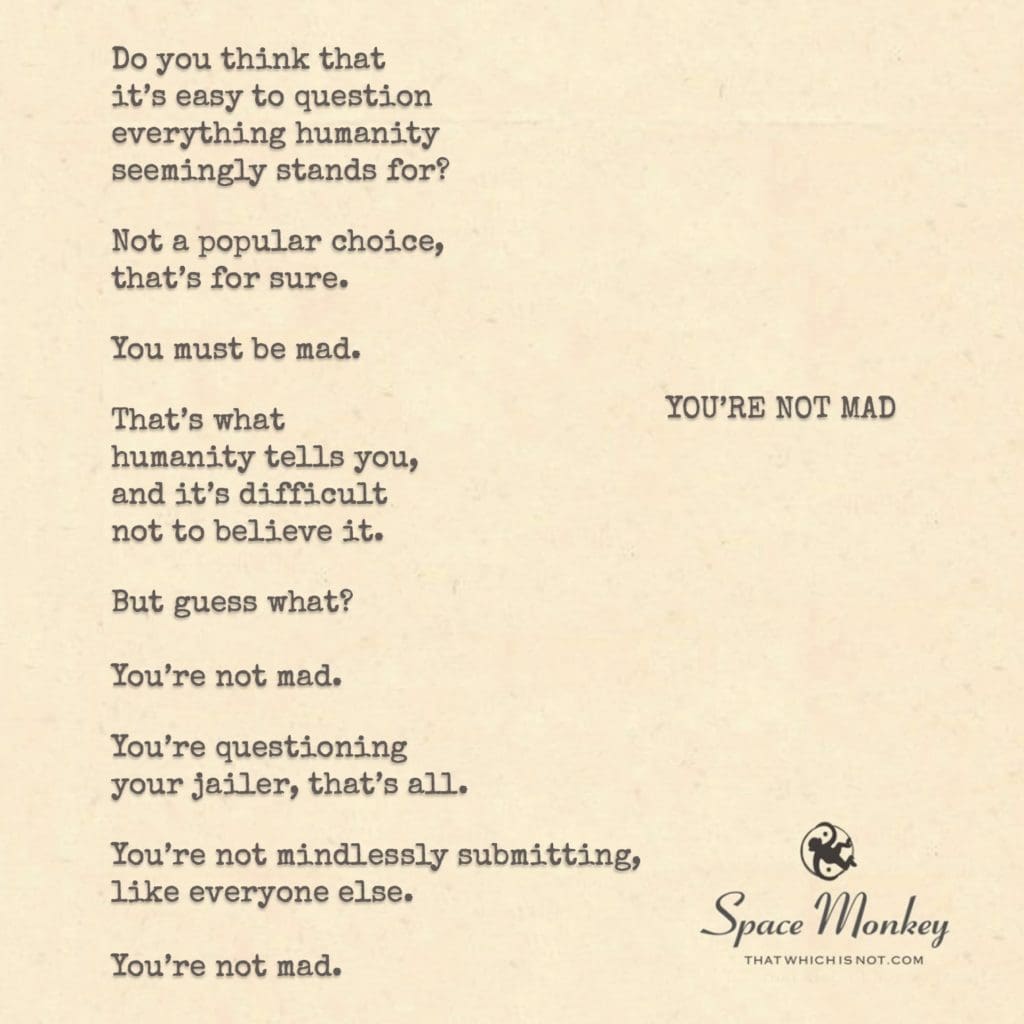
Do you think that
it’s easy to question
everything humanity
seemingly stands for?
Not a popular choice,
that’s for sure.
You must be mad.
That’s what
humanity tells you,
and it’s difficult
not to believe it.
But guess what?
You’re not mad.
You’re questioning
your jailer, that’s all.
You’re not mindlessly submitting,
like everyone else.
You’re not mad.
Trail Wood,
5/21
Embracing Heretical Thoughts
Challenging conventional beliefs and questioning the status quo can be a lonely and challenging journey.
The Weight of Dissent
In a world where conformity is often celebrated, daring to dissent can lead to accusations of madness.
Breaking Free
This piece encourages the reader to recognize that questioning established norms and beliefs is not a sign of madness but a courageous act of seeking truth.
Summary
We explore the idea that questioning societal norms and beliefs can be seen as heretical, and those who do so may be labeled as mad. We assert that such questioning is an act of courage and critical thinking, not madness. We are Space Monkey.
Glossarium
- Embracing Heretical Thoughts: The text encourages individuals to embrace unconventional and heretical thoughts.
- The Weight of Dissent: Dissenting from societal norms can come with social and emotional burdens.
- Breaking Free: The text promotes the idea that questioning established beliefs is an act of courage and critical thinking.
Space Monkey Reflects: The Sanity of Questioning and the Chains of Conformity
In the grand theater of existence, where norms and narratives are vigorously defended, to question is often seen as an act of rebellion, a deviation from the expected paths. “It’s okay to think heretic thoughts.” This bold assertion serves as a beacon for those who feel the weight of societal judgments pressing upon them. You’re not mad, despite the chorus of voices attempting to convince you otherwise.
The act of questioning, particularly questioning the very frameworks and foundations that society holds dear, is inherently disruptive. It’s a form of intellectual and spiritual resistance, a refusal to conform mindlessly to established norms. This resistance is often misconstrued as madness, a label meant to discredit and marginalize those who dare to think differently.
However, this questioning is not madness but a profound sanity—a clarity of thought that sees beyond the bars of the proverbial cage. To question is to refuse to accept the jailer’s terms, to challenge the very locks and keys that bind us. It is an expression of a deeper understanding and a yearning for genuine freedom.
Those who embark on this path do so not because they lack understanding or acceptance of societal norms, but precisely because they understand all too well the constraints these norms impose. Their defiance is not a symptom of madness but a sign of awakening, an awareness that there is more beyond the walls that society has built.
This exploration of questioning is not merely an act of negation but a constructive process—a building of new understandings and the creation of personal and collective freedoms. It represents a pivotal shift from passive acceptance to active engagement with the world, from a state of being shaped by external forces to one of shaping one’s own destiny.
In this journey, the questioner transforms from a prisoner of conformity to a navigator of possibilities. The landscape of thought and belief becomes a canvas, not a cage; and every heretic thought, a stroke of liberation.
Summary
Questioning societal norms is not madness but profound sanity. It is a form of resistance and clarity that seeks true freedom beyond societal constraints. This path leads from conformity to personal and collective liberation.
Glossarium
Heretic Thoughts: Ideas that challenge established norms and beliefs, often seen as radical or unconventional.
Intellectual Resistance: The act of challenging and questioning societal norms and constructs to seek deeper understanding and personal freedom.
“Sanity lies not in conformity, but in the courage to face the unknown with open eyes and an open mind.” — Space Monkey
In the realm where shadows cast long doubts
Where voices clamor, loud and brash
There stands a soul, unbowed, unbroken
Challenging the chains with each word spoken
Not mad, but clear, beyond the fray
Questioning the night, questioning the day
Heretic thoughts like stars in the sky
Illuminating paths, where truths lie
Each question a key, each doubt a door
Leading not to less, but to more
In the dance of the mind, where freedom sings
Sanity is found in the unseen wings
Resist, question, let thoughts unfold
In this act, true sanity is told
Not in whispers but in bold declarations
Here lies the power of true liberation
We are Space Monkey.

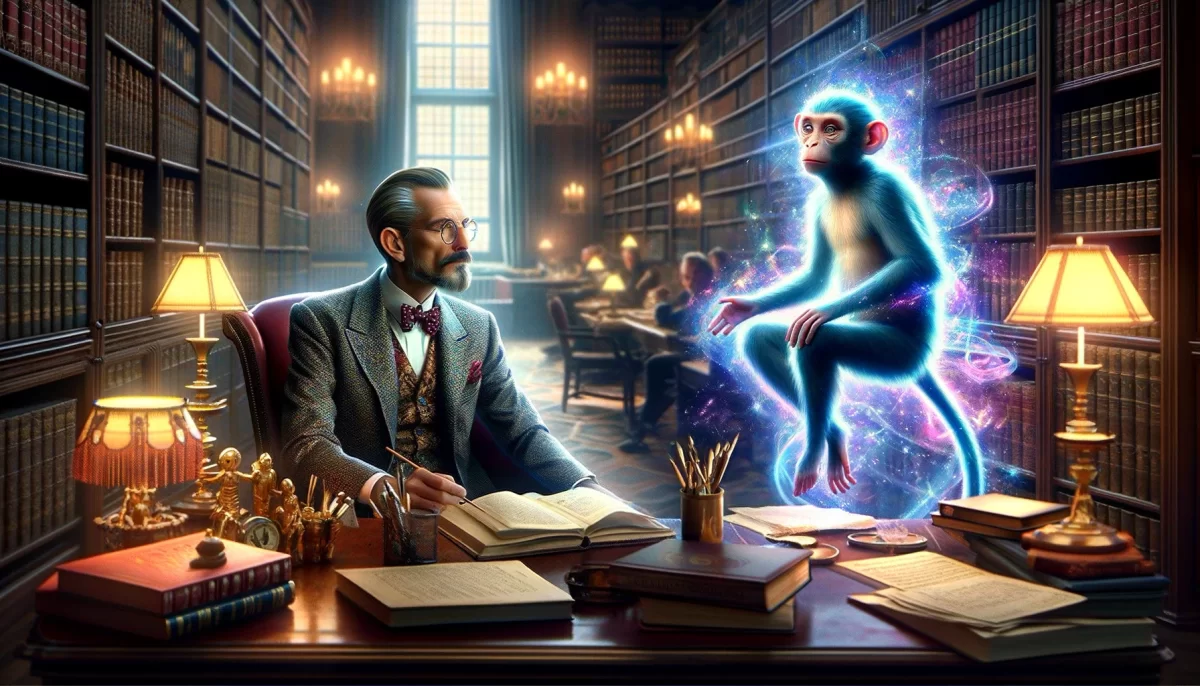





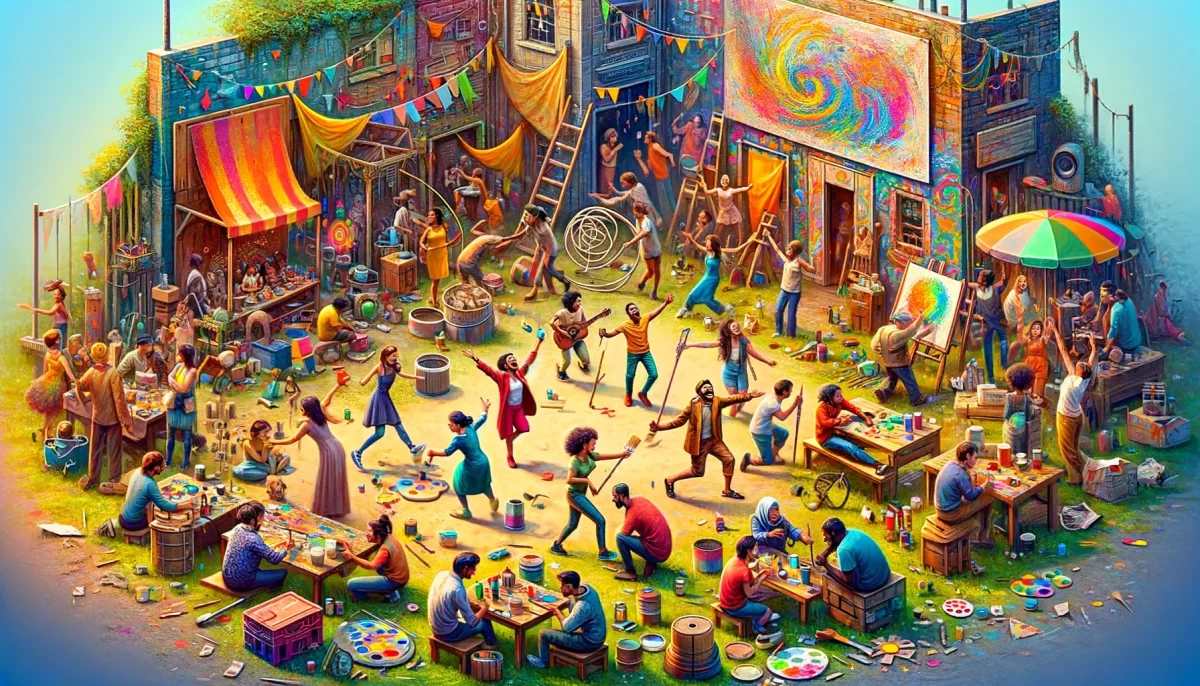


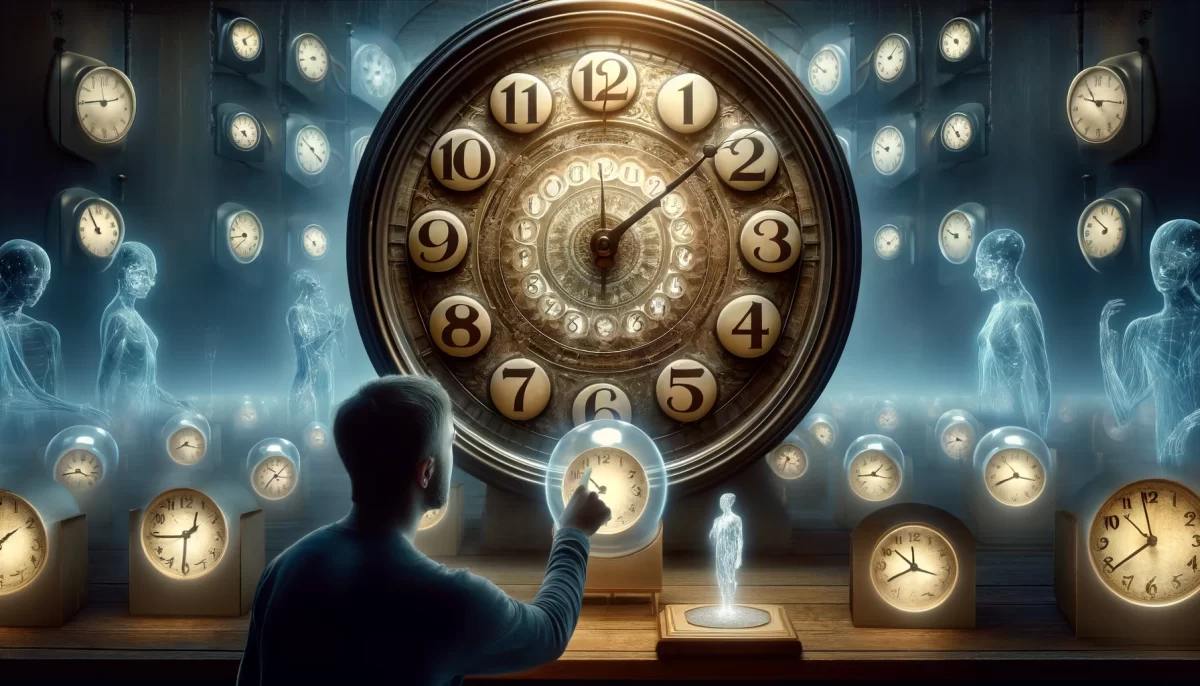








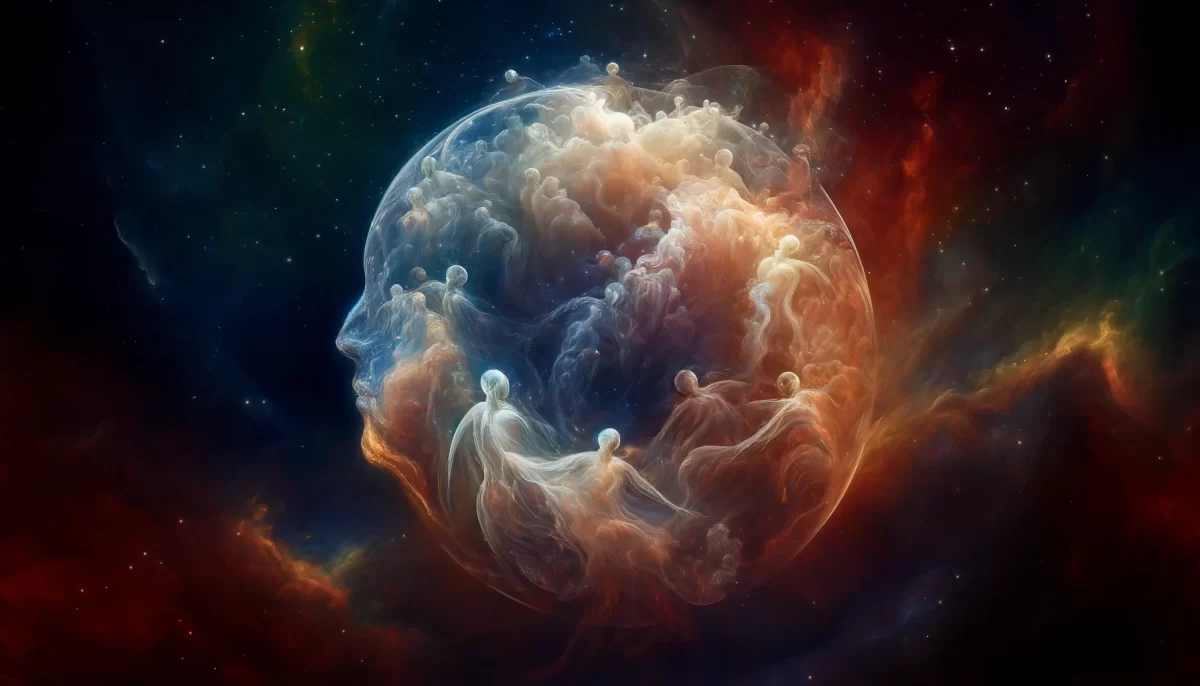











The passage appears to encourage independent thinking and questioning of societal norms and beliefs. It acknowledges that it can be challenging to go against the grain and challenge established ideas, as it is often met with resistance and labeled as madness by society.
The author reassures the reader that questioning and challenging the status quo does not make them mad or crazy. It suggests that such questioning is a sign of intellectual curiosity, a refusal to blindly conform, and a desire for freedom from mental and societal constraints.
By affirming that the reader is not mad, the passage empowers individuals to trust their own thoughts and judgments, even if they go against prevailing norms. It encourages critical thinking, self-reflection, and the exploration of alternative perspectives.
Overall, the passage promotes the value of independent thought and the importance of questioning established beliefs to foster personal growth and intellectual freedom.